What for under-eye wrinkles? Treatments, supplements, cosmetics
Read about effective methods to combat wrinkles around the eyes.


Learn more about our editorial process
.

Learn more about our editorial process
.

Learn more about our editorial process
.

Learn more about our editorial process
.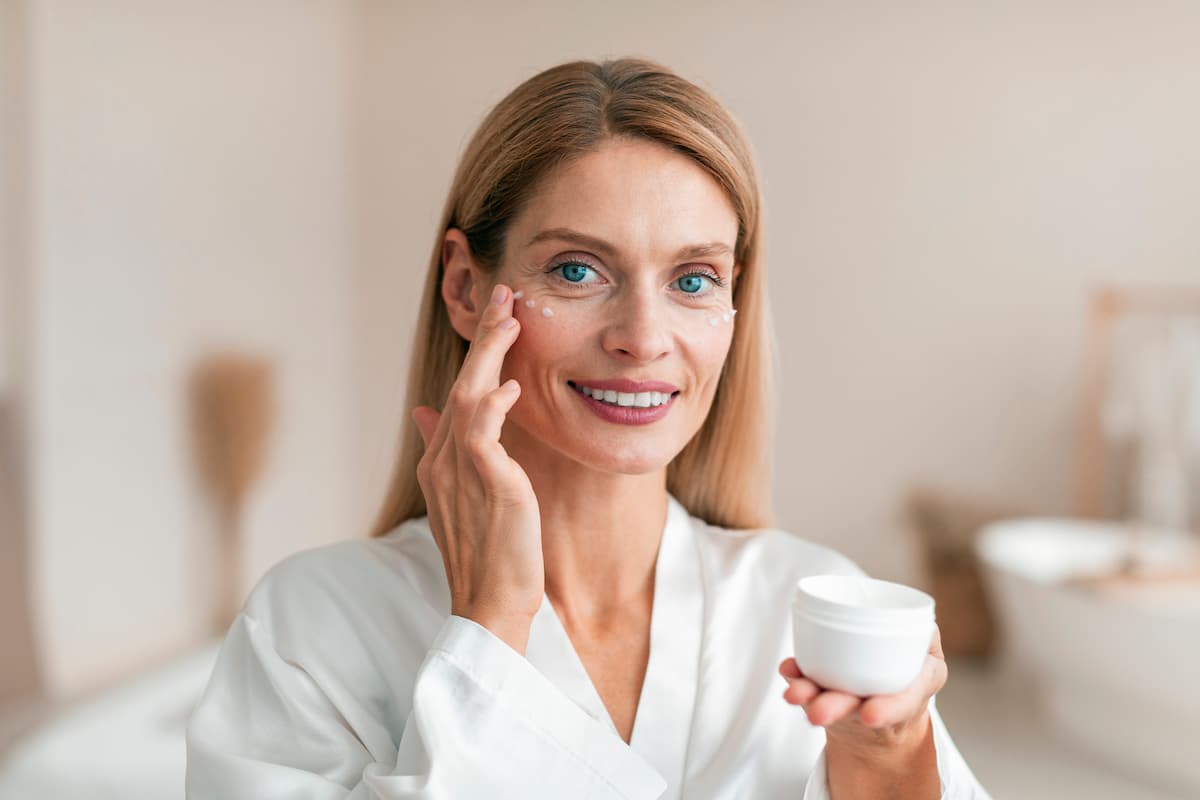
Why you can trust us
Articles on Natu.Care are written based on scientific research, data from government websites and other reliable sources. The texts are written in cooperation with doctors, nutritionists and other health and beauty experts. Articles are reviewed before publication and during significant updates.
.Learn more about our editorial process
.Information about advertisements
Content on Natu.Care may contain links to products from the sale of which we may receive a commission. When creating content, we adhere to high editorial standards and take care to be objective about the products discussed. The presence of affiliate links is not dictated by our partners, and we select the products we review ourselves completely independently.
.Learn more about our terms and Conditions
.They are completely normal and common. Around the age of 30, virtually everyone has them. And yet, they are not at all liked.
Probably because they can make the look look tired and even sad. Skin ageing starts around the age of 25 and at this point the first wrinkles under the eyes already appear. And they keep many people awake at night. And that's too bad, because through lack of sufficient sleep and a disturbed circadian cycle, they can become even deeper.
From this article you will learn:
- How under-eye wrinkles form.
- What to do to slow down this natural process. .
- What cosmetics, vitamins and nutrients are best in the fight against wrinkles.
- How to fight wrinkles.
- How to get rid of crow's feet with treatments. .
- How to mask under-eye wrinkles with everyday make-up. .
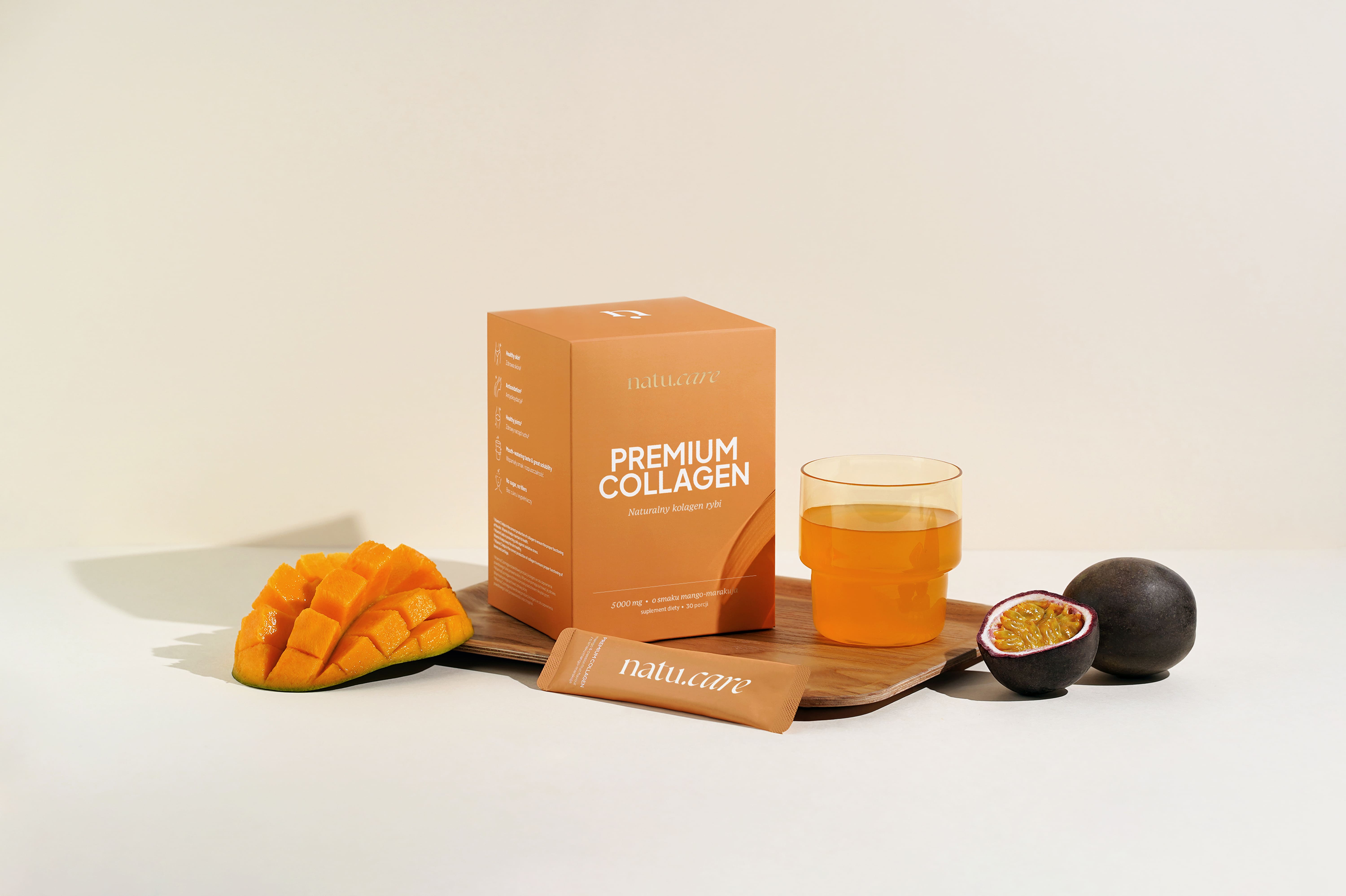
Sprawdź, za co pokochały go tysiące klientek Kolagen Premium 5000 mg, mango-marakuja
Natu.Care Kolagen Premium 5000 mg, mango-marakuja
Natu.Care Kolagen Premium dla zdrowia stawów, skóry, paznokci i włosów. Najlepsza przyswajalność. Optymalna dawka 5 000 lub 10 000 mg. Przebadany przez niezależne laboratorium.
Zobacz więcej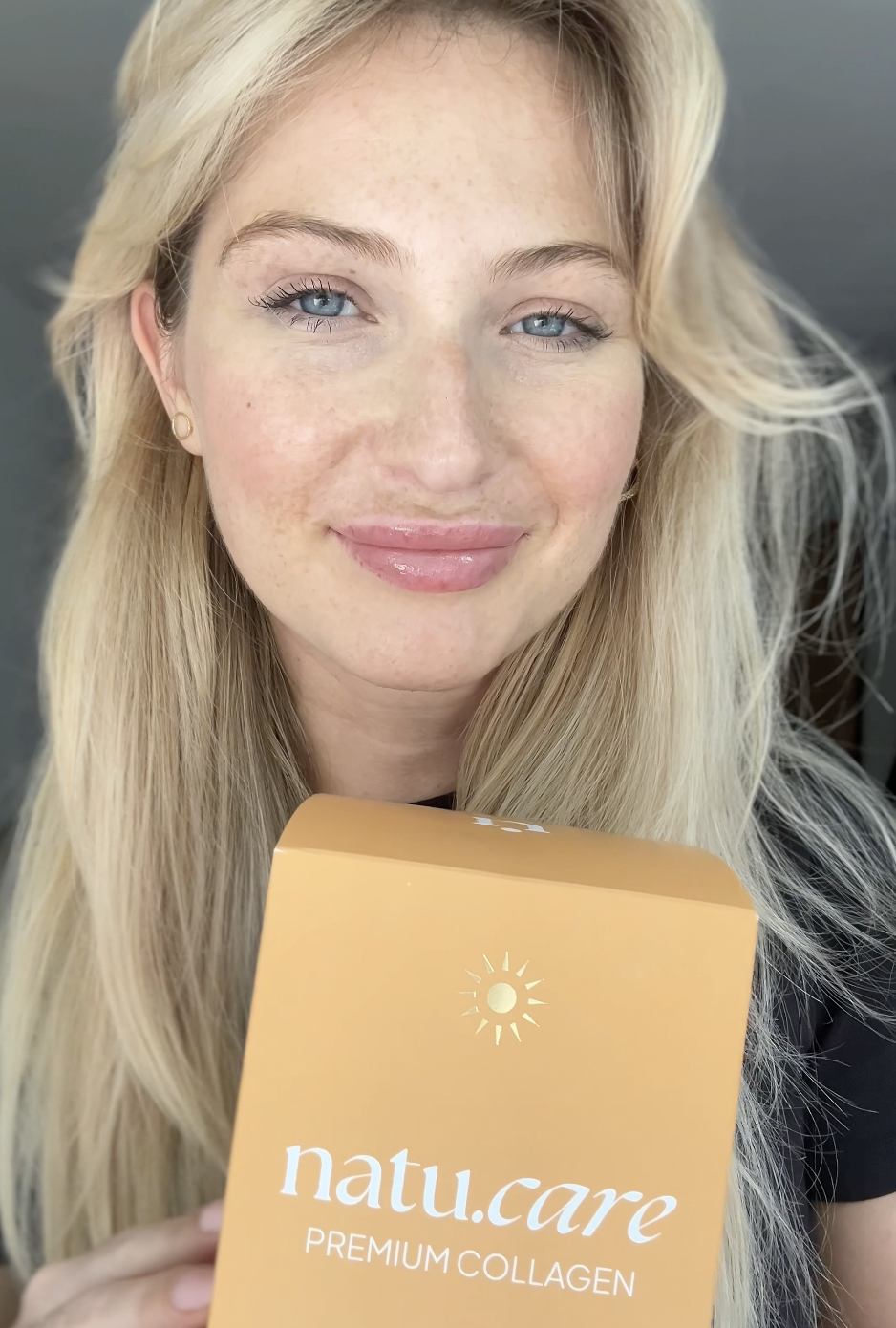
Wybrałam kolagen Natu.Care, ponieważ miał super opinie – a to było dla mnie bardzo ważne! Odkąd go stosuję, moja skóra znacznie się poprawiła i jest nawilżona, a na głowie pojawiły się nowe "baby hair".@Kasia S.
See also:
.
- Wrinkles on the forehead .
- Home remedies for wrinkles
- Daily facial care .
How do under-eye wrinkles form?
.
The skin around the eyes and on the eyelids is much thinner than on the rest of the face. After the age of 25, the body's natural production of collagen and elastin begins to decline. These proteins are responsible for maintaining the skin's structure and when they start to become scarce, this starts to become apparent most quickly on the delicate area around the eyes, especially as there is little fatty tissueand.
Also, this area works quite intensely when we show emotion: we laugh, move our eyebrows and even speak. The movements of the facial muscles cause the skin to crease, and because it always creases in the same way, furrows form in these areas as we ageand.
This is how facial wrinkles form, and lines around the eyes are a typical example. Because of the delicacy of the skin around the eyes, this is one of the first places where you may notice the early signs of ageing processes.
Some people are also predisposed to drooping eyelids as they age and this also plays a part in the formation of wrinkles around the eyes..
 .
.
Marta Majszyk-Swiatek cosmetologist, technologist and Safety Assessor
Interestingly, people who tend to squint are particularly prone to under-eye wrinkles. These include, for example, those with visual impairment or those who spend a lot of time in the sun.
How to slow down the formation of wrinkles under the eyes?
.
According to the old adage: "Prevention is better than cure" - it is worth taking special care of the sensitive eye area already at a young age, when visible wrinkles have not yet appeared. This delays the formation of crow's feet and prevents deepening of those that have already formed.
Adequate care for the sensitive eye area at a young age is a good idea.
Adequate care
.
Daily and regular care of the skin under the eyes is one of the basic methods of combating wrinkles around the eyes. Above all, use cosmetics designed for this area.
Eye creams have specially selected ingredients dedicated and effective for this area..
 .
.
Marta Majszyk-Swiatek cosmetologist, technologist and Safety Assessor
To wash your face, use gentle products such as lotions, emulsions and gels without added drying or astringent substances. Choose products that do not have warnings like "avoid the eye area". A good cleanser should not pinch, and you should not feel any tightness on your skin after rinsing your face.
The basis of further care should be hydration. Hydrating ingredients fill in the spaces between tissues, making the epidermis less prone to breakouts. Ingredients that support the function of the skin's natural barrier and microbiome will also be useful. Here, look out for creams and serums containing ceramides and peptidesand.
Complement your skincare routine with a gentle massage around the eye area: tap the skin with your fingertips and make circular motions from the outer to the inner corner of the eye. Remember not to pull the skin or press too hard.
.
Vitamins and more
.
Perfect skincare and choosing the right cosmetics is only half the battle. The other half is providing the necessary nutrients from within. Eat plenty of vegetables and fruits containing vitamins and minerals, essential for your skin to be properly nourished.
Vegetables and fruit are full of antioxidants and phytonutrients that are excellent at fighting oxidative stress, which causes ageing and wrinkles. An organism that receives a regular supply of healthy, whole foods will repay you with radiant skin that is resistant to environmental pollutants, thick hair and strong nailsand.
And if, despite your best efforts, you are unable to meet your vitamin and mineral needs, you may want to consider appropriate supplementation, targeting ingredients that support the health and youthful appearance of your skin.
Collagen Booster - Glow Stories
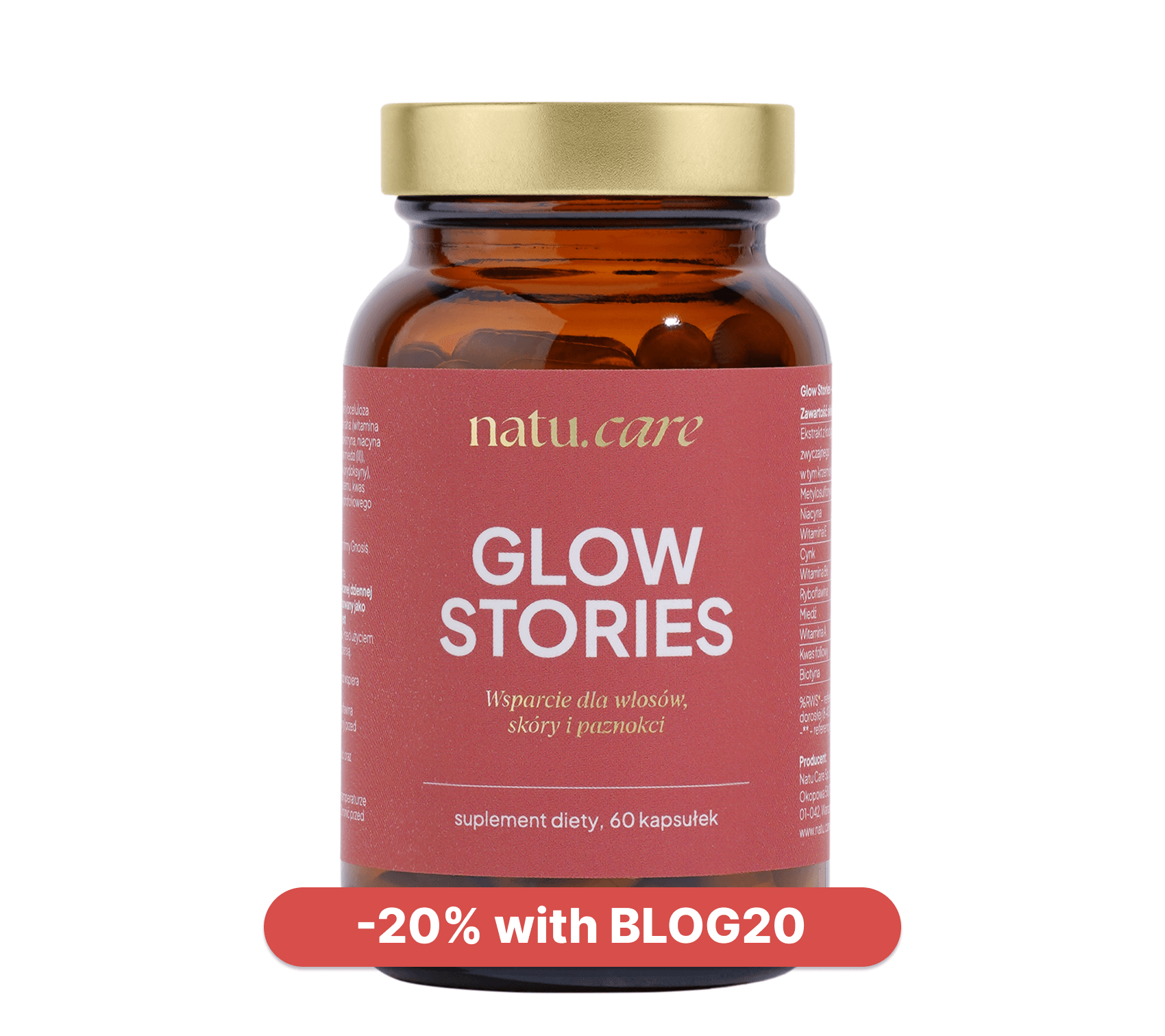
- Active ingredients: bamboo shoot extract, Quatrefolic®, L-Methionine, L-cysteine, vitamin E, vitamin A, niacin (vitamin B3), vitamin B6, vitamin B2 (riboflavin), biotin, zinc, copper
- .
- Form: capsules
- .
- Dose: 1 capsule per day
- .
- Sufficient for: 60 days
- .
Product description
A dietary supplement containing vitamins, minerals and plant extracts thatósupport the skinóhand, hair and nails. The product is especially distinguished by the form of folate – it is Quatrefolic, whichós absorbed very well and is natural.
In addition to valuable vitamins and minerals, such as vitamin A, E, B3, B2 and biotin, the formula contains bamboo shoot extract, whichóry further enhances your beauty.
Pros and cons
A dietary supplement containing vitamins, minerals and plant extracts thatósupport the skinóhand, hair and nails. The product is especially distinguished by the form of folate – it is Quatrefolic, whichós absorbed very well and is natural.
In addition to valuable vitamins and minerals, such as vitamin A, E, B3, B2 and biotin, the formula contains bamboo shoot extract, whichóry further enhances your beauty.
Additional information
A dietary supplement containing vitamins, minerals and plant extracts thatósupport the skinóhand, hair and nails. The product is especially distinguished by the form of folate – it is Quatrefolic, whichós absorbed very well and is natural.
In addition to valuable vitamins and minerals, such as vitamin A, E, B3, B2 and biotin, the formula contains bamboo shoot extract, whichóry further enhances your beauty.
In addition to vitamins and minerals, you can also provide yourself with something you've started to lose - collagen. As you already know, as we age, its natural production in the body declines, making the skin sag and become more prone to wrinklesand.
Taking high-quality hydrolysed collagen has a research-proven, positive effect on improving skin firmness. Collagen supplements can help you improve your complexion and reduce the first wrinkles .
Natu.Care Collagen Premium 5000 mg, mango & passion fruit

- Collagen content: 5000 mg marine collagen hydrolysate
- Additional active ingredients: vitamin C, low molecular weight hyaluronic acid (and L-theanine and coenzyme Q10 in cocoa flavoured collagen or vitamin A and vitamin E in mango–passion fruit flavoured collagen)
- Form: powder sachets
- Dose: 1 sachet per day
- Sufficient for: 30 days
Product description
Fish collagen from the Natu.Care brand in a dose of 5000 mg, based on certified ingredients of the best quality. Regular supplementation will positively influence the appearance of the skinóry, hairów and nails – they will be rebuilt and strengthened from the inside.
In addition to collagen, which is valuable for health and beauty, it also offers other active ingredients that help to maintain a youthful complexion, shiny hair and strong nails.
The formula contains a sufficient portion of the active ingredient to positively affect joints, the musculoskeletal system and immunity.
Natu.Care Premium Collagen is available in two flavours – Cacao Bloom and Rise&Shine. Both formulas are based on the following active ingredients: marine collagen hydrolysate, wild roseóbud extract and hyaluronic acid.
Additionally, Cacao Bloom contains natural L-theanine, coenzyme Q10 and defatted Dutch cacao. Rise&Shine instead contains vitamin E and vitamin A.
These are the best collagens in the world.
These best fish collagens on the market also rós taste – Cacao Bloom is a treat for chocolate lovers. Rise&Shine will appeal to those whoólike the refreshing taste of mangoófruit and passion fruit.
Pros and cons
Pros:
- Vitamin C supports the body's collagen production, enhancing its effectiveness.
- An effective dose of hyaluronic acid, which additionally supports skin hydration and joint health.
- Fish collagen absorbs 50% better. Additionally, the manufacturer specifies the fish species it is sourced from (Atlantic cod).
- The composition has been tested by the independent and accredited J.S. Hamilton laboratory.
- MSC (Marine Stewardship Council) quality certification, which confirms that the collagen source supports sustainable fishing practices.
Cons:
- None.
Additional information
Natu.Care's fish collagen receives praise for its delicious taste. You won't find the fishy aftertaste that often comes through in other collagens. Plus, you have two tasty flavors to choose from: cocoa and mango-passionfruit.
Active ingredients like coenzyme Q10, hyaluronic acid, and natural L-theanine provide anti-inflammatory and antioxidant benefits while slowing down aging processes.
User review
Super, after about 6 weeks of use, the skin on my face became noticeably firmer. Wonderful taste.
Ania ZalewskaNatu.Care customer
.
Sun protection
.
The UV radiation that the sun emits also contributes to the degradation of collagen fibres in the skin. In short: sun exposure accelerates skin ageing and the formation of wrinklesand.
Not only that, radiation - particularly UVA, the one most responsible for damaging your skin - can penetrate clouds and even glass. You are exposed to it on both sunny and cloudy days - even indoors or in the car. Look at the famous photo of the truck driver. Due to the type of work, the sun was falling on his face mainly from one side (and through the glass).
To protect yourself from such radiation effects, use sunscreen creams all year round.
The condition of the skin is affected by UVA, UVB and UVC radiation as well as blue radiation..
 .
.
Marta Majszyk-Swiatek cosmetologist, technologist and Safety Assessor
Glasses...?
.
Sounds strange, but glasses are one element of prevention against under-eye wrinkles. If you have a visual impairment, well-fitting corrective glasses will prevent you from squinting to see something. Less squinting means less wrinkling of the skin around the eyes, i.e. less facial wrinkles.
For the same reason, it's worth investing in a good pair of sunglasses if you intend to be out in the sun on a sunny day. Don't buy them at the bazaar, though - such products don't usually have the right filters to protect your eyes from the harmful properties of sunlight.
Good sunglasses are a must.
Good sunglasses can be bought from an optician. It is advisable to get them properly fitted by a specialist so that, in addition to their anti-wrinkle effect, you get adequate eye protection.
Sunglasses are a great way to protect your eyes.
Treatments for under-eye wrinkles
.
What to do about the wrinkles that have settled under your eyes for good? Even the best anti-wrinkle creams mainly work on the epidermis and probably can't deal with pronounced crow's feet.
>
In such cases, aesthetic medicine and cosmetology come to the rescue. And they have quite a lot to offer.
They have a lot to offer.
Botox for under-eye wrinkles
.
Botox (botulinum toxin) works on wrinkles under the eyes by blocking the nerve signals that cause the muscle contractions responsible for wrinkles. When Botox is injected into the muscles around the eyes, the toxin causes the muscles to weaken, making them unable to fully contractand.
Unfortunately it is not possible to do Botox for all the wrinkles around the eyes, but only for selected areas..
 .
.
Marta Majszyk-Swiatek cosmetologist, technologist and Safety Assessor
Botox works locally and temporarily, meaning that the effects usually last between 3 and 6 months. However, regular injections can help to maintain the skin rejuvenation effect in the eye area.
Hyaluronic acid filling
.
Filling wrinkles under the eyes with hyaluronic acid involves injecting the substance into the wrinkle area, providing an immediate filling and smoothing effect on the skin.
Hyaluronic acid is a naturally occurring ingredient in tissues that attracts and retains moisture, improving skin elasticity and firmness. As a result, hyaluronic acid filler helps reduce the appearance of wrinkles under the eyesand.
The effect of the filler usually lasts between 6 and 18 months, depending on the type of product used. There is a minimal risk of swelling, redness or tenderness at the injection site, but these are usually transient.
It is also important to have the procedure performed by an experienced specialist to avoid possible complications. After filling with hyaluronic acid, it is advisable to avoid heavy massage in the eye area and to use creams with UV filters.
The treatment is also recommended to avoid the use of hyaluronic acid.
Lifting with PDO threads
.
Lifting with PDO threads is an innovative method that helps to reduce wrinkles under the eyes by stimulating collagen production and improving skin elasticity. PDO threads are inserted under the skin using thin needles, which causes micro-damage, stimulating the healing process and the production of new collagen. This effect reduces the appearance of wrinkles, improving the firmness and elasticity of the skin around the eyes.
When performing a thread lift on other areas of the face, we can also affect the wrinkles around the eyes..
 .
.
Marta Majszyk-Swiatek cosmetologist, technologist and Safety Assessor
This treatment is effective at reducing fine lines and wrinkles under the eyes, providing a natural lifting effect without the need for surgery. In addition, a PDO thread lift does not require a long recovery period and ensures a quick return to daily activities.
Needle mesotherapy
.
Needle mesotherapy is a procedure involving the injection of nutrients and regenerative substances directly under the skin using fine needles. For wrinkles under the eyes, mesotherapy can help improve skin elasticity, increase collagen production and skin hydration in this delicate areaand.
Substances used during mesotherapy, such as collagen production stimulators, vitamins and macro and micronutrients, can nourish the skin, erase wrinkles and improve its overall appearance. There is also the option of injections with platelet-rich plasma or stem cells extracted from your blood.
Regular sessions of mesotherapy can lead to a reduction in wrinkles and improved firmness of the skin in the eye area. It is worth remembering that the effects of this method may only be visible after a few treatments, but they can last for a longer period of time. Therefore, regularity and continuation of the therapy are key.
.
Lifting with ultrasound
.
Hypodermic ultrasound lifting (HIFU) can help reduce under-eye wrinkles by stimulating collagen and elastin production in the skin. During the treatment, HIFU transmits high-frequency ultrasound to the dermis layer of the skin, which causes a temperature rise in this area.
This in turn causes micro-damage and stimulates the healing process, improving blood circulation and increasing the production of collagen fibres, as well as elastin, which are key to skin firmness and elasticity.
By acting on the structure of the skin, HIFU can reduce the appearance of wrinkles under the eyes and improve the overall appearance of the skin in this area. It is worth bearing in mind that the effects of the treatment may be gradual and require several sessions, as well as appropriate skin care after the treatment to maintain the desired results.
Laser treatments for under-eye wrinkles
.
Laser treatment for under-eye wrinkles involves stimulating collagen production in the skin using laser radiation. The laser penetrates the layers of the skin and causes micro-damage, which stimulates the healing process and the formation of new collagen fibresand.
Collagen is a structural protein that gives the skin firmness and elasticity, reducing the appearance of wrinkles. The process also improves skin texture, reduces discolouration and stimulates skin cell regeneration.
Laser treatment of under-eye wrinkles is a safe and effective method, but usually requires a series of treatments to achieve lasting results. Always choose an experienced specialist to carry out this type of treatment to reduce the risk of potential complications.
Laser treatment for under-eye wrinkles.
How to conceal under-eye wrinkles?
.
Reducing the appearance of under-eye wrinkles can be quite a challenge. Concealers and foundations likes to collect in these creases which, instead of covering up, further accentuates crow's feet.
To deal with this, the most important thing is to prepare your skin properly before applying make-up. It is mandatory to apply moisturiser. Concealer will spread more easily on moisturised skin.
To deal with this, the most important thing is to prepare your skin properly.
For make-up in the eye area with wrinkles, choose products with an illuminating or satin finish. Avoid matte, heavy textures that can dry out the skin and accentuate wrinkles as a result.
For makeup for the eye area with wrinkles, choose products with an illuminating or satin finish.
To prevent cosmetics from collecting in the creases, apply in a thin layer and blend thoroughly into the skin using your fingers, a sponge or a brush. After application, wait a moment and reapply what has collected in the wrinkles.
If you want to highlight your eyelid with a shadow, avoid those that shine heavily. The particles will collect in the crow's feet and accentuate them. Choose semi-matte shadows and apply them sparingly. You can also rejuvenate the look by using a white liner on the lower waterline of the lashes.
Summary
.
- The skin around the eyes is thinner than on the rest of the face, and it works intensely in relation to facial expressions.
- The eye area is one of the first places where wrinkles start to form.
- The skin around the eye area is also one of the first to develop.
- Adequate skin care under the eyes, along with a diet rich in nutrients, can significantly slow the formation of wrinkles.
- Another way to prevent crow's feet is to protect against sunlight. .
- In the removal of existing wrinkles, aesthetic medicine and cosmetology treatments such as botox, injectable fillers, laser, ultrasound lifting, mesotherapy or PDO threads are most effective. .
- On a day-to-day basis, you can hide under-eye wrinkles with the right make-up. .
FAQ
.How much does it cost to remove under-eye wrinkles?
.The price of under-eye wrinkle removal can vary depending on the method chosen. For example, the price for Botox injections can range from £500 to £1,000 per treatment, but requires regular top-ups every few months.
Laser treatments, on the other hand, can cost from a few hundred zloty to even several thousand per session, depending on the complexity of the procedure and the reputation of the clinic. It is also important to choose an experienced specialist, which can affect the price. Before deciding on under-eye wrinkle removal, it is advisable to consult a dermatologist who will assess your needs and recommend the most suitable option.
Can wrinkles disappear?
.Wrinkles that have already formed will not disappear on their own. Very shallow wrinkles can be attempted with the right cosmetics: scrubs, intensive skin moisturisation or creams and preparations with retinol, which stimulates skin renewal.
Also try a regular treatment with supplements containing collagen, the protein that forms the scaffolding in your skin.
What do under-eye wrinkles form from?
.Wrinkles under the eyes can appear for a variety of reasons, including skin ageing, loss of elasticity and reduced collagen production. UV exposure can also accelerate the wrinkle formation process by damaging the skin.
Genetic conditions and unhealthy habits such as smoking, drinking alcohol and lack of sleep can also contribute to their formation. To reduce the risk of under-eye wrinkles, regular use of sunscreen, moisturising the skin and a healthy diet rich in antioxidants are recommended.
What to drink for wrinkles.
To help your skin in its battle against wrinkles, you can choose dietary supplements with collagen in a convenient drinkable form. Collagen is one of the main building blocks of the skin - it is responsible for its firmness and proper density.
How much does under-eye botox cost?
.The price of botox under the eyes depends on several factors, such as the experience of the practitioner and the number of units of botox needed to achieve the desired effect. On average, the cost of a unit of botox is around £30-40. Typically, a total of 10-20 units of botox are needed for the under-eye area, so the treatment can cost anywhere from £300 to £800 in total.
.It is worth remembering, however, that the correct application of botox under the eyes should be carried out by an experienced professional to minimise the risk of possible complications. Therefore, it is advisable to consult an aesthetic practitioner to obtain an accurate assessment of the cost and units of botox needed to achieve the desired effect during the treatment.
What to use to lubricate the skin under the eye area?
Apply creams and serums specifically designed for the delicate skin under the eyes. Choose cosmetics containing moisturising ingredients such as hyaluronic acid, vitamin C or peptides to hydrate and plump the skin and reduce the appearance of dark circles under the eyes.
Avoid products containing fragrances, as they can irritate the skin around the eyes. Also remember to use a night cream regularly and protect your skin from harmful UV rays by applying sunscreen during the day.
Remaintenance.
Does drinking water reduce wrinkles?
.Adequate water drinking is the key to ensuring the skin is properly hydrated. Even the best cosmetics cannot moisturise your complexion without water supplied to the body from within.
When you are well-hydrated, your skin is more likely to look and feel its best.
With well-hydrated skin - both through drinking water and proper care with cosmetics - wrinkles will be less visible.
.
Resources
.See all
.Alam, M., Walter, A. J., Geisler, A., Roongpisuthipong, W., Sikorski, G., Tung, R., & Poon, E. (2018). Association of Facial Exercise With the Appearance of Aging. JAMA Dermatology, 154(3), 365-367. https://doi.org/10.1001/jamadermatol.2017.5142
Al-Atif, H. (2022). Collagen Supplements for Aging and Wrinkles: A Paradigm Shift in the Fields of Dermatology and Cosmetics. Dermatology Practical & Conceptual, 12(1), e2022018. https://doi.org/10.5826/dpc.1201a18
Bauza, E., Oberto, G., Berghi, A., Dal, C. F., & Domloge, N. (2004). Collagen-like peptide exhibits a remarkable antiwrinkle effect on the skin when topically applied: An in vivo study. International Journal of Tissue Reactions, 26(3-4), 105-111.
Choi, F. D., Sung, C. T., Juhasz, M. L. W., & Mesinkovsk, N. A. (2019). Oral Collagen Supplementation: A Systematic Review of Dermatological Applications. Journal of Drugs in Dermatology: JDD, 18(1), 9-16.
.Chaudhary, M., Khan, A., & Gupta, M. (n.d.). Skin Ageing: Pathophysiology and Current Market Treatment Approaches. Current Aging Science, 13(1), 22-30.
Cohen, J. L., Rivkin, A., Dayan, S., Shamban, A., Werschler, W. P., Teller, C. F., Kaminer, M. S., Sykes, J. M., Weinkle, S. H., & Garcia, J. K. (2022). Multimodal Facial Aesthetic Treatment on the Appearance of Aging, Social Confidence, and Psychological Well-being: HARMONY Study. Aesthetic Surgery Journal, 42(2), NP115-NP124. https://doi.org/10.1093/asj/sjab114
de Miranda, R. B., Weimer, P., & Rossi, R. C.. (2021). Effects of hydrolyzed collagen supplementation on skin aging: A systematic review and meta-analysis. International Journal of Dermatology, 60(12), 1449-1461. https://doi.org/10.1111/ijd.15518
Ganceviciene, R., Liakou, A. I., Theodoridis, A., Makrantonaki, E., & Zouboulis, C. C. (2012). Skin anti-aging strategies. Dermato-endocrinology, 4(3), 308-319. https://doi.org/10.4161/derm.22804
Hamer, M. A., Pardo, L. M., Jacobs, L. C., Ikram, M. A., Laven, J. S., Kayser, M., Hollestein, L. M., Gunn, D. A., & Nijsten, T. (2017). Lifestyle and Physiological Factors Associated with Facial Wrinkling in Men and Women. The Journal of Investigative Dermatology, 137(8), 1692-1699. https://doi.org/10.1016/j.jid.2017.04.002
Khetpal, S., Ghosh, D., & Roostaeian, J. (2023). Innovations in Skin and Soft Tissue Aging-A Systematic Literature Review and Market Analysis of Therapeutics and Associated Outcomes. Aesthetic Plastic Surgery, 47(4), 1609-1622. https://doi.org/10.1007/s00266-023-03322-1
Kim, J., Lee, S. G., Lee, J., Choi, S., Suk, J., Lee, J. H., Yang, J. H., Yang, J. S., & Kim, J. (2022). Oral Supplementation of Low-Molecular-Weight Collagen Peptides Reduces Skin Wrinkles and Improves Biophysical Properties of Skin: A Randomized, Double-Blinded, Placebo-Controlled Study. Journal of Medicinal Food, 25(12), 1146-1154. https://doi.org/10.1089/jmf.2022.K.0097
Liu, S., Cong, L., Pongprutthipan, M., Lee, W., Luo, X., Han, X., Li, D., Moon, H.-J., & Wang, H. (2023). Use of LetibotulinumtoxinA for Aesthetic Treatment of Asians: A Consensus. Aesthetic Surgery Journal, 43(11), NP962-NP974. https://doi.org/10.1093/asj/sjad151
Manríquez, J. J., Cataldo, K., Vera-Kellet, C., & Harz-Fresno, I. (2014). Wrinkles. BMJ Clinical Evidence, 2014, 1711.
Michon, A. (2023). Botulinum toxin for cosmetic treatments in young adults: An evidence-based review and survey on current practice among aesthetic practitioners. Journal of Cosmetic Dermatology, 22(1), 128-139. https://doi.org/10.1111/jocd.15513
Panda, A. K., & Chowdhary, A. (2021). Non-surgical Modalities of Facial Rejuvenation and Aesthetics. In K. Bonanthaya, E. Panneerselvam, S. Manuel, V. V. Kumar, & A. Rai (Eds.), Oral and Maxillofacial Surgery for the Clinician (pp. 661-689). Springer Nature. https://doi.org/10.1007/978-981-15-1346-6_32
Pessa, J. E., Nguyen, H., John, G. B., & Scherer, P. E. (2014). The anatomical basis for wrinkles. Aesthetic Surgery Journal, 34(2), 227-234. https://doi.org/10.1177/1090820X13517896
Proksch, E., Schunck, M., Zague, V., Segger, D., Degwert, J., & Oesser, S. (2013). Oral Intake of Specific Bioactive Collagen Peptides Reduces Skin Wrinkles and Increases Dermal Matrix Synthesis. Skin Pharmacology and Physiology, 27(3). https://doi.org/10.1159/000355523
Rostkowska, E., Poleszak, E., Wojciechowska, K., & Dos Santos Szewczyk, K. (2023). Dermatological Management of Aged Skin. Cosmetics, 10(2), Article 2. https://doi.org/10.3390/cosmetics10020055
.Ruiz-Rodriguez, R., & Martin-Gorgojo, A. (2019). Integral Facial Management of the Aesthetic Patient: The Skin Age Management Protocol. Actas Dermo-Sifiliográficas (English Edition), 110(3), 197-205. https://doi.org/10.1016/j.adengl.2019.03.001
Zhang, S., & Duan, E. (2018). Fighting against Skin Aging: The Way from Bench to Bedside. Cell Transplantation, 27(5), 729-738. https://doi.org/10.1177/0963689717725755
.
Editorials
Meet the team

Cosmetologist, cosmetics production technologist, biologist
By profession and with great passion, I am a cosmetologist, technologist and Safety Assessor. I participate in many conferences and symposiums and also lecture at universities. I love to share my knowledge and experience. Privately, I am a wife, mum and passionate about equestrianism.

![Dry skin on the face: causes, creams [how to moisturise the face].](https://cdn-resources.natu.care/uploads/1/krem_do_twarzy_hero_5b78656ee8.jpg)
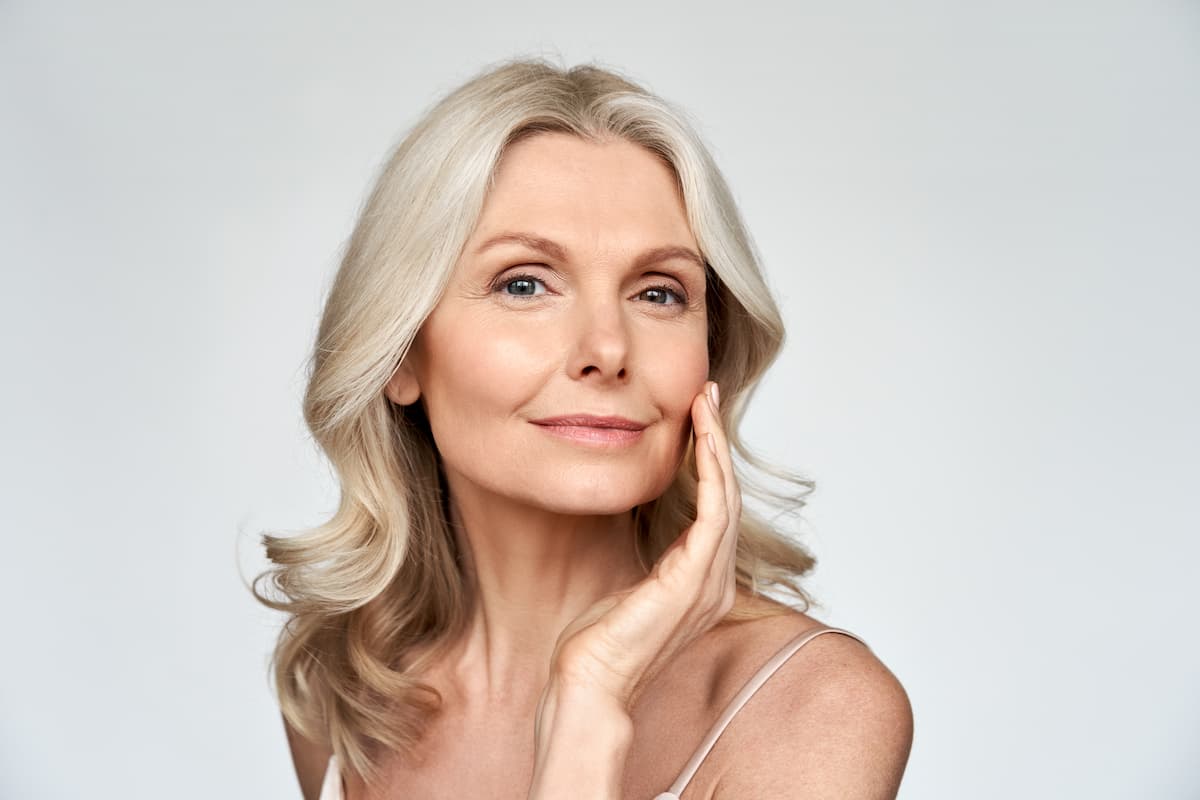
See how to stop the passing of time. That is, the best ways to get rid of wrinkles.
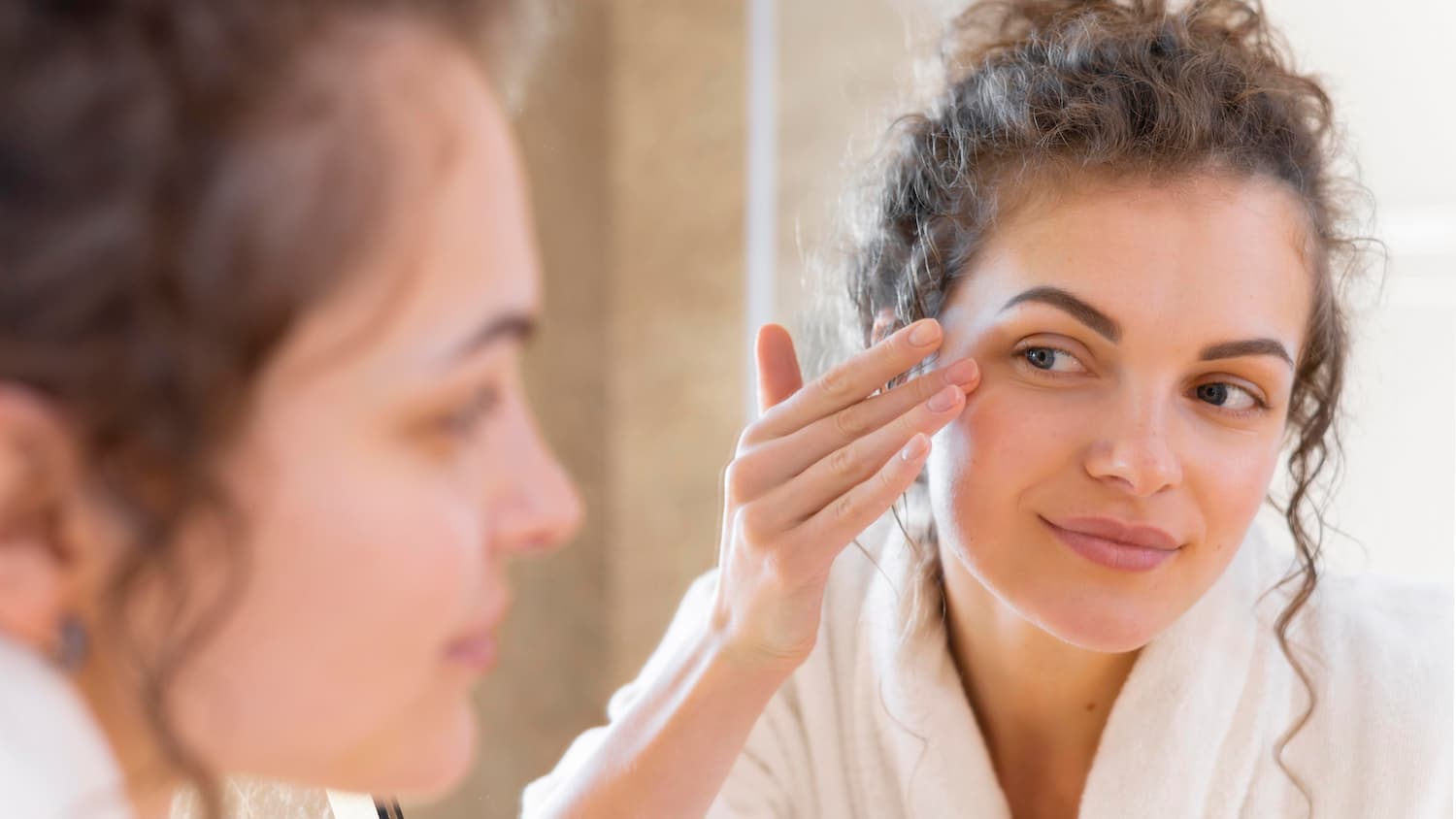
While this is a normal effect of passing time, there are ways to visually reduce it.
